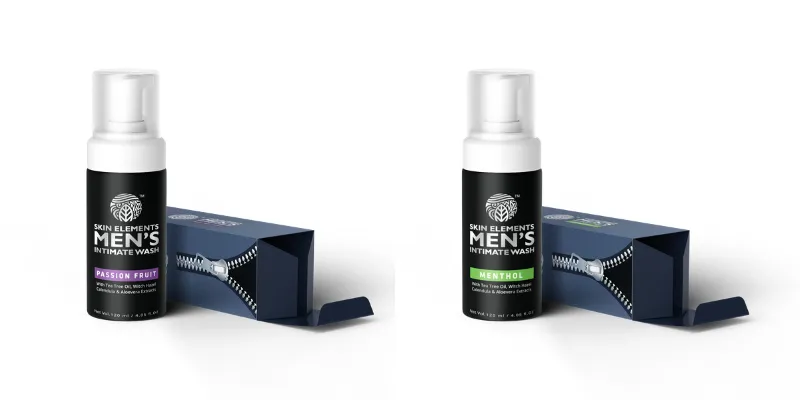These two friends started a men’s personal care brand from Himachal Pradesh to rake in Rs 7.5 Cr turnover in 4 years
Based out of Parwanoo in Himachal Pradesh, Sarthak Taneja and Raghav Sood started Skin Elements in 2017 to cater to the as yet untapped segment of personal care for men.
That the personal care market in India has largely concentrated on female consumers is a well-known fact. However, with changing consumer behaviour, and entrepreneurs looking to tap into new customer segments, the market for men’s personal care represents a major opportunity.
Childhood friends Sarthak Taneja and Raghav Sood launched in 2017, amidst growing awareness about personal hygiene, and availability of products on ecommerce platforms. One of their first products was niche in the market - foaming intimate wash for men.
In an interaction with SMBStory, the duo speaks about this relatively new segment in the country that lay ignored for long, and how they found their niche.
“When we decided to enter into the beauty and hygiene space, D2C was booming. However, brands like , and mCaffeine were already making a name in the beauty space. We realised there were fewer options in the personal hygiene industry, and even within that, there were almost no options in the men’s hygiene products. That’s when we found our market to hit,” Sarthak says.
Acting immediately, Sarthak and Raghav invested a total sum of Rs 10 lakh from their savings, and started Skin Elements out of Parwanoo in Himachal Pradesh.
Creating a category
Sarthak claims Skin Elements is a pioneer in the men’s hygiene category in the Indian personal care market, which is touted to be worth US $ 3 billion, expected to reach $5 billion by 2025. “In countries like the US, the personal hygiene market is gender-neutral, but when we began our research, we saw that bulk of the hygiene products were focussed on the women’s segment, and for men, there were only beauty brands,” Raghav says.
Hailing from Himachal Pradesh, home to some of India’s top manufacturers across industries in its Baddi region, the duo were sure the products will be homegrown. They contacted a third-party manufacturer in Parwanoo, an industrial town in the mountain state, who partnered with them for the research and development of the products.

Skin Element's men's personal hygiene products
After launching the brand’s first product, a foaming intimate wash for men, the duo came up with an anti-chafing cream, catering to sportspersons especially.
“For chafing, people habitually use vaseline, which is not a proper solution. So we came up with this product and ended up selling approximately 550 units per month right after its launch."
Initially launched through Amazon, Skin Elements’ products are now available in all leading ecommerce portals including , , and others. According to Raghav, the business has been profitable since its inception, and the company also secured a $102K seed round led by Dheeraj Jain from Redcliffe Capital.
Today, the brand offers holistic skincare and personal hygiene solutions with a strong focus on hygiene, odour management, anti-chafing solutions, skincare and haircare, and has a total of 19 products. It opened its second office in Gurugram in 2017.
The competition
Currently, brands like Beardo and Pee Safe have also made an entry into the men’s hygiene category, and despite the competition, Skin Elements has gained approximately one lakh customers in India, the US, Malaysia, and the UK. In FY21, the company clocked a turnover of Rs 7.5 crore.
Sarthak says the brand spends only a minimal amount on product launches, and most of the marketing expenses go into influencer marketing.
Major challenges and the way ahead
Due to the nature of the segment, which is intimate personal care, one of the challenges the brand faced initially was finding influencers to market their products. Male influencers were reluctant to tap into the market. However, once the products were introduced in the market, user statistics improved.
Talking about the future, Sarthak says they are building their product portfolio and planning to launch 10 more variants as part of their new line of products.
Edited by Anju Narayanan









